I have a complex LINQ Query to extract Top students in my university. Here is the query :
var query = Db.Students.AsNoTracking().Where(...).AsQueryable();
var resultgroup = query.GroupBy(st => new
{
st.Student.CourseStudyId,
st.Student.EntranceTermId,
st.Student.StudyingModeId,
st.Student.StudyLevelId
}, (key, g) => new
{
CourseStudyId = key.CourseStudyId,
EntranceTermId = key.EntranceTermId,
StudyingModeId = key.StudyingModeId,
StudyLevelId = key.StudyLevelId,
list = g.OrderByDescending(x =>
x.StudentTermSummary.TotalAverageTillTerm).Take(topStudentNumber)
}).SelectMany(q => q.list).AsQueryable();
This Query give me top n students based on 4 parameters and on their TotalAverageTillTerm.
Now I want to add rownum for each group to simulate Total rank, for example Output is :
Now I want to Add TotalRank as rownumber like Sql. In the picture X1=1,X2=2,X3=3 and Y1=1,Y2=2,Y3=3
If I want to reduce problem. I only work on one group. Code Like this :
resultgroup = query.GroupBy(st => new
{
st.Student.StudyLevelId
}, st => st, (key, g) => new
{
StudyLevelId = key.StudyLevelId,
list = g.OrderByDescending(x =>
x.StudentTermSummary.TotalAverageTillTerm)
.Take(topStudentNumber)
}).SelectMany(q => q.list).AsQueryable();
